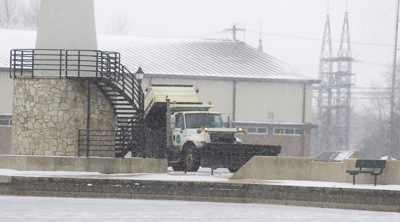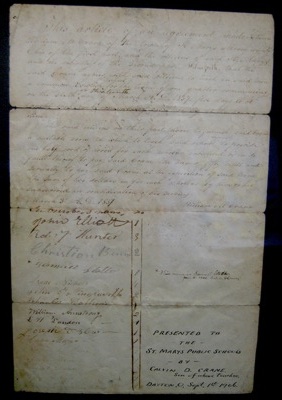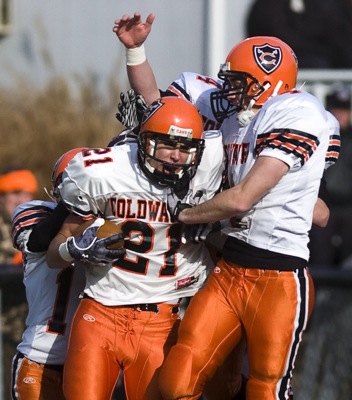Tuesday, December 7th, 2010
Manure rules likely effective this month
By Nancy Allen
A legislative committee on Monday cleared the way for new rules restricting some farmers from spreading manure on frozen land to prevent it from running off into Grand Lake and other waters.
The Ohio Department of Natural Resources hopes to have the rules in place before the end of the year. It can now move forward with the plan after the Joint Committee on Agency Rule Review (JCARR) determined the agency has the authority to do so.
Mike Shelton of the Ohio Department of Natural Resources (ODNR) said of the 20 new rules, ODNR will not be able to require two of those - one that requires watershed farmers to have a nutrient management plan and another banning manure application between Dec. 15 and March 1 - until the Ohio Soil and Water Conservation Commission places a "distressed" designation on the Grand Lake Watershed. Shelton said the commission is expected to meet Jan. 18 to take that action.
The manure spreading ban would be phased in over the next two years, during which time farmers would be required to follow what are currently voluntary best management practices outlined by the USDA between Dec. 15 and March 1. The complete ban between those dates would become affective Jan. 18, 2013.
Monday's hearing was the final opportunity for interested groups and individuals to offer testimony about the rules before JCARR made its decision.
JCARR, a legislative oversight panel comprised of five senators and five state representatives, has until Dec. 12 to reconvene and invalidate the rules. Shelton said to his knowledge that has never occurred. If JCARR does not invalidate the rules, ODNR could finally file and the rules would go into effect Dec. 23, Shelton said.
Four people testified during Monday's hearing. Three representing the local Lake Improvement Association (LIA), Friends for the Preservation of Ohio State Parks (FPOSP) and the Ohio Environmental Council (OEC) testified in support of the new rules. The Ohio Farm Bureau (OFB) testified as an interested party.
In her written testimony OFB representative Beth Vanderkooi said while the OFB feels ODNR's authority over the new rules is not directly on point "we acknowledge the (ODNR) director's general powers do provide some authority in this area and that agronomically this is a reasonable approach. We thus support moving forward on this rule package at this time, although we will closely monitor the rules as the agency moves forward and will seek further clarification going forward if needed."
Tom Rampe, testifying on behalf of the LIA, said his group considers the new rules "to be the absolute minimum that must be done to reduce agricultural phosphorous washing into the lake, noting that studies show more than 85 percent of run-off comes from farming operations. He suggested the restrictions should extend from Nov. 15 to April 1.
Bill Ringo testified on behalf of FPOSP, referring to Gov.-elect John Kasich's promise of creating jobs for Ohio. One of the most important components to the state's productivity is based on "sound, safe and healthful outdoor recreational experience that can be provided by Ohio's state parks. It only stands to reason part of the strategy to attract business to Ohio is to ensure the protection of our parks and their water resources," Ringo said.
Joe Logan of the OEC said time will answer the question whether the new rules will be effective in achieving water quality goals and strongly urged JCARR to approve them.
Shelton said farmers could apply for state aid to help build a storage unit for the manure. The new rules would double the amount of state help a farmer could get - to $30,000 from $15,000. Farmers also could get federal assistance to help them develop a manure management plan, he said.
The impetus for ODNR drafting the new rules was the blue-green algae blooms that plagued Grand Lake this summer, but they could be applied to any watershed getting the distressed designation in the future, Shelton said.
The rules will be reviewed in five years, as are almost all state agency rules, Shelton said.
Toxic blue-green algae blooms overtook the lake this summer, resulting in the state placing a no contact advisory on it. Algae's main food source is phosphorous, most of which runs off farmland, the largest land use in the 58,000-acre watershed.
To read the new proposed rules for the Grand Lake Watershed go to http://www.dnr.state.oh.us/tabid/23035/Default.aspx
- The Associated Press contributed to this story.


